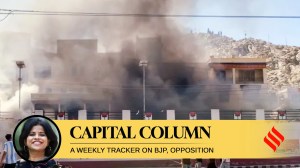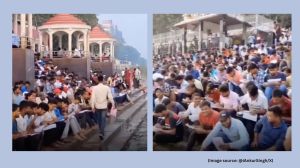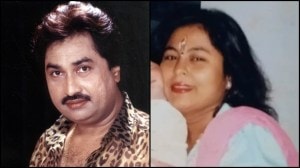BCCI finally Dalmiya-free, Pawar in charge now
The most revealing clue to the change at the top came hours later, at the press conference. You’re a busy man, Mr Pawar, will you even ...

The most revealing clue to the change at the top came hours later, at the press conference. You’re a busy man, Mr Pawar, will you even take our calls, one reporter asked. ‘‘You don’t need to call me’’, the new BCCI president said. ‘‘I have an excellent team, call any of them, they are competent to deal with any situation.’’
The change in Indian cricket was not one of personality or geography—the centre of gravity shifts to Mumbai—but one of attitude. Where Jagmohan Dalmiya controlled everything, fielding all calls and pulling every string himself, his successor Sharad Pawar prefers a looser, more democratic system.
Fittingly, it was through a more democratic, open system that Pawar was elected today, the presence of a former Chief Election Commissioner ensuring a relatively amicable process. The overwhelming margin of Pawar’s victory, 20 votes to 11, ruled out any wrangling and at the end both sides shook hands, traded praises and the two leaders promised to meet up for breakfast tomorrow.
Then the new regime got down to business and one of its first acts—which will go down well everywhere except this city—was to reconstitute the panel of selectors and remove the three who last week had pushed through Sourav Ganguly’s name into the Test team.
That was one of several positive signals to coach Greg Chappell. Others came from Pawar’s new team. Secretary Niranjan Shah said the ‘‘review committee’’ to evaluate Chappell’s performance would be disbanded. Raj Singh Dungarpur, one of Pawar’s seniormost backers, called for captain and coach to be given a vote in the selection process.
Off the field, the theme is likely to be ‘‘professionalism’’. It’s something Pawar himself referred to several times at his press conference today. ‘‘It’s high time to bring professionalism in the functioning of the board’’, he said while promising a media committee.
|
The Agenda
|
|||||
|
• Change selectors, done first thing today |
|||||
‘‘We deal with public at large, media and sponsors. It is our responsibility to keep very good relation with this cross section in the day to day running of the board.’’
Criticism of Dalmiya’s regime usually centred on the fact that, by keeping the reins in tight control, he prevented things from moving forward. One reason he did this was because his team wasn’t technically qualified to decide on issues like players’ contracts and TV rights.
Pawar’s is. The group that propelled him to victory today includes a formidable blend of experience and youth. IS Bindra, one of India’s best cricket administrators and marketing strategists; Raj Singh Dungarpur, another of Pawar’s predecessors; Chennai’s N Sriniwasan, a storehouse of financial knowledge; and Lalit Modi, who provides the cutting edge to the others’ experience.
Pawar’s biggest drawback—he’s not known for his cricketing abilities—may actually be his strength. Officials in the Mumbai Cricket Association, which Pawar controls, offered insight into his style of working. ‘‘We only give him a call when we are stuck in something and need his high-level intervention’’, said one top official. ‘‘He believes that former cricketers should be given a bigger role in the affairs. Look at the MCA body, there are so many cricketers there.’’ There is much work to be done in the days ahead and Pawar and his team, speaking on the record and off it, unveiled an ambitious plan today. Indian cricket will be the better if even half of that is achieved.
Interestingly enough, when West Bengal CM Buddhadeb Bhattacharjee was informed by reporters that Pawar had won, he remarked, ‘‘Thank goodness.’’





- 01
- 02
- 03
- 04
- 05


























